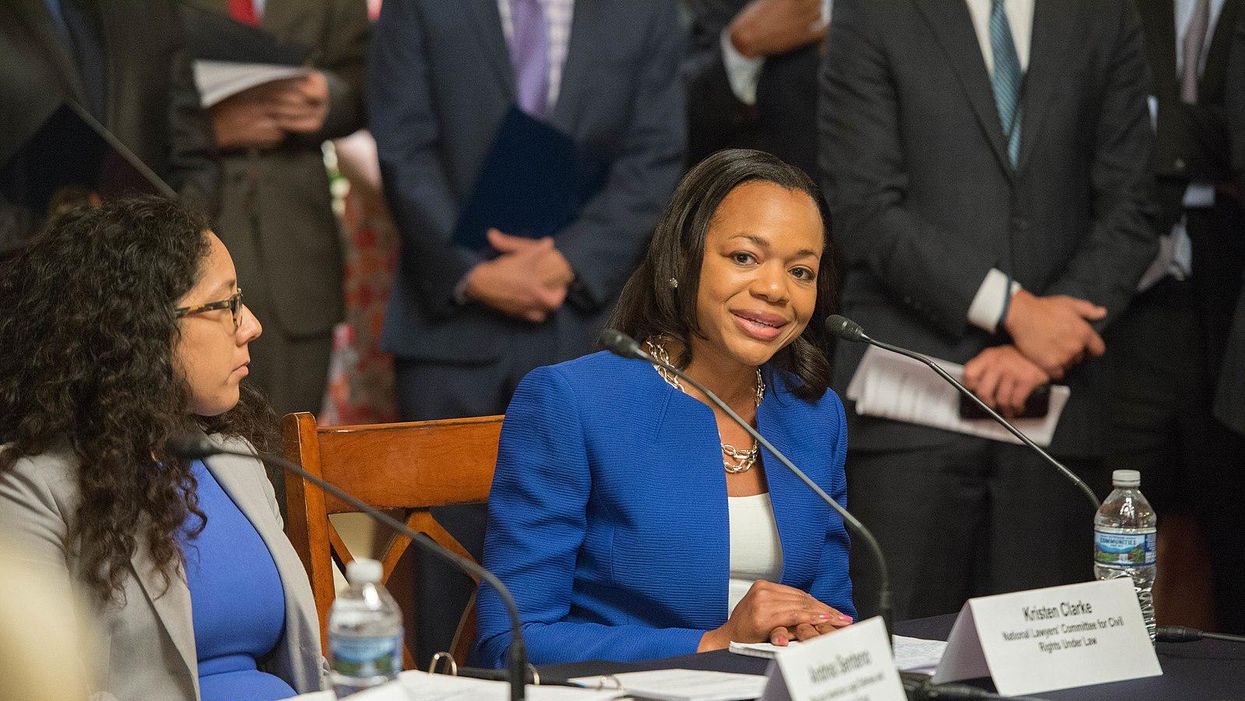Biden's Federal Reserve Nominees Come Under Right-Wing Attack
Washington (AFP) - Though set up as an institution operating above the partisan fray in Washington, the Federal Reserve has again become a political football, with Republicans and business groups attacking President Joe Biden's nominees to serve on the central bank's board.
Biden last month announced a slate of candidates who would at long last fill all the seats of the seven-member board, and include the first Black woman to hold the position since the Fed was founded 108 years ago.
If all three are confirmed, the majority of the board members would be women for the first time, and most would be named by a Democratic president.
Critics say the choices threaten to inject a political slant into the Fed's management of the economy just as it pivots to fighting inflation, which threatens to undermine the recovery from the Covid-19 pandemic.
But economists and Fed watchers say the criticisms are unfounded and in some cases racially motivated.
The Senate Banking Committee is scheduled to hold a hearing Thursday to consider the nominations of Lisa Cook, an economics professor at Michigan State University, who would be the first African American woman to serve as Fed governor.
Lawmakers will also consider Philip Jefferson, of Davidson College, who would be the fourth Black man to serve on the body.
For the powerful post of Fed vice chair for supervision, which oversees the nation's banks, Biden tapped Sarah Bloom Raskin.
She previously served as Fed governor and in a senior role at the Treasury Department under former president Barack Obama, as well as the top state bank regulator in Maryland. She is married to Rep. Jamie Raskin (D-MD).
Biden also renominated Jerome Powell to a second term as Fed chair, and named current board member Lael Brainard to serve as vice chair. They are awaiting Senate confirmation.
Race And Climate
The White House said the picks "will bring long overdue diversity to the leadership of the Federal Reserve."
But Senator Pat Toomey, the ranking Republican on the Senate Banking Committee, complained about a lack of "diversity" among nominees to the board, which does not have anyone from the energy industry.
His complaints, echoed by the US Chamber of Commerce, center on Raskin, charging she would be overly aggressive in focusing on banks' roles in fighting climate change.
She has called for the Fed to ensure financial institutions take climate risks into consideration, something Powell also endorses.
Toomey's concerns are the mirror image of opposition expressed by some Democrats to Powell's nomination for a second term at the helm of the central bank, who argue he is not focused enough on climate change.
Racially Motivated Attacks?
Conservative political commentator George Will has accused the Fed of being politicized, writing in a column that Cook's "peer-reviewed academic writings pertinent to monetary policy are, to be polite, thin."
However other board members, including Powell, are not trained economists.
"I just don't understand the backlash," said Diane Swonk, chief economist at Grant Thornton. "It just really seems to be pretty biased."
Cook and Jefferson have researched inequality in the labor market, a topic Powell has repeatedly highlighted as important, since the Fed works to ensure the benefits of economic expansions reach all parts of society.
Swonk called Cook a "phenomenal" candidate.
Biden's nominees "bring enormous depth to the Fed at a time when" the central bank is "finally acknowledging inequality and what it costs us," she told AFP.
Amid the attacks, the National Economic Association issued a statement supporting Cook and Jefferson, both past presidents of the organization, that called them "uniquely and exceptionally qualified."
Republican Support
David Wessel, senior fellow at The Brookings Institution and a longtime Fed watcher, dismissed the criticisms about qualifications, saying they impose a "double standard" on Cook.
"The whole point of having a seven-member Federal Reserve Board... is to represent a cross section of America," he told AFP.
"Nobody wants to have a Federal Reserve Board... that's all white guys who went to the same three Ivy League schools."
The nominees also have won Republican support.
Kevin Hassett, a top economist under former president Donald Trump, praised Jefferson as "exactly the type of economist who should be at the Fed at this difficult time."
Representative Patrick McHenry, the top Republican on the House Financial Services committee, which oversees the Fed in the lower chamber of Congress, highlighted Raskin's "long history of distinguished government service."












